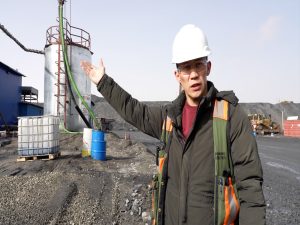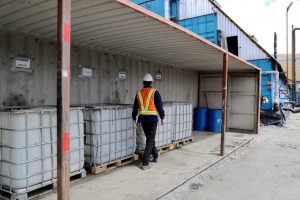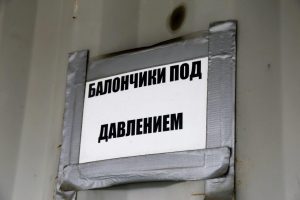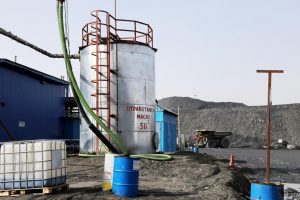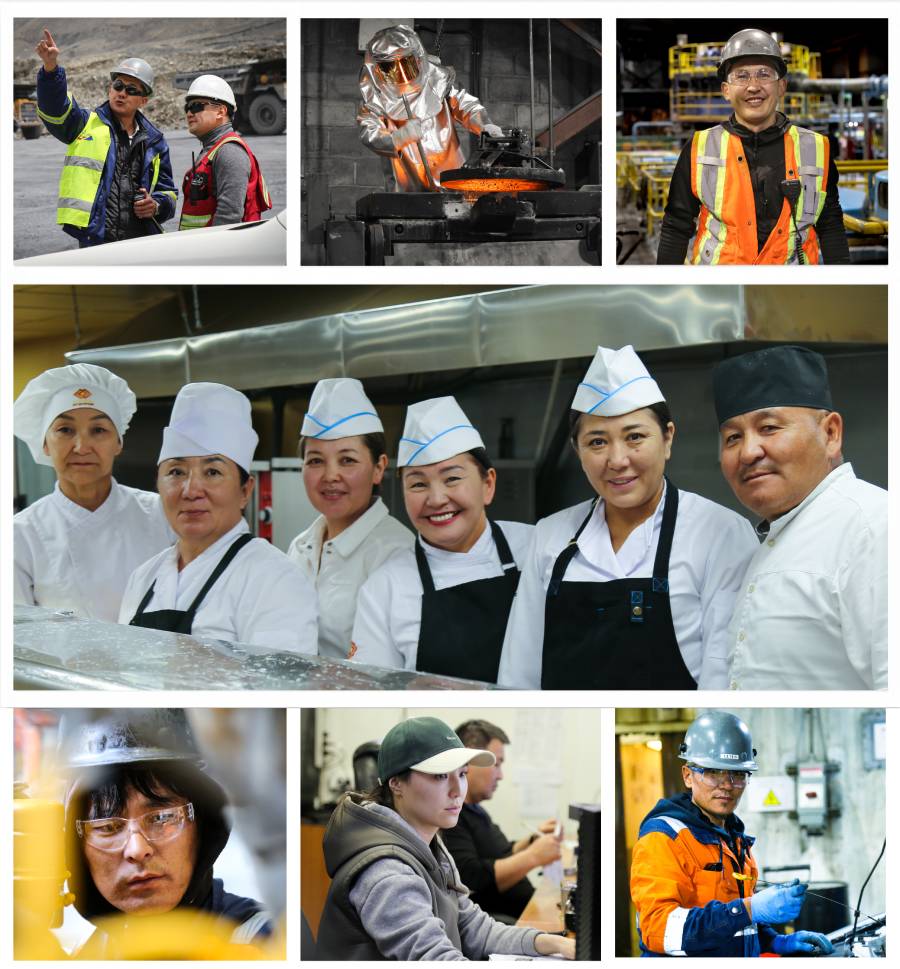How Kumtor Protects the Environment: 39 Types of Industrial Waste Sorting
published: 18 July 2022
In order to minimize negative impact on the environment, Kumtor Gold Company CJSC recycles all production waste. Such waste includes waste oils, biodegradable food waste, and even hazardous items such as used batteries.
Akzhol Akzhigit uulu, Engineer of the Environment Protection Department, told how the company approaches the issue of waste sorting and recycling.
According to him, special containers for collecting waste oils have been installed in all maintenance shops of the mine for the repair of heavy duty and light vehicles. Before being sent for recycling, a special oil engineer takes a sample of the oil for analysis. After receiving the results confirming that this is indeed waste oil, the Environment Protection Department contacts the recyclers and jointly plans the pickup of waste oil.
“All recycling companies have the necessary documents and a positive conclusion from government agencies. All waste is weight controlled and recorded. Records are kept both in paper form and electronically. The Environment Protection Department monitors work of all departments for compliance with the standards for handling of industrial and consumption waste. We also collect data and monitor all types of waste,” said Akzhol Akzhigit uulu.
The specialist added that the Company’s key focus is to prevent negative impact of any industrial waste on the environment. This is why 39 types of waste were identified for careful sorting and subsequent recycling.
“Absolutely all production waste is recycled. We should keep in mind that this does not include hazardous types of waste that cannot be recycled, but there are very few of them. Today, at Kumtor, all production waste is sorted into 39 types, almost all of which are recycled: these include plastic, wood, metals, cables, copper, and so on,” the engineer explained.
According to the company’s waste segregation program, containers for each type are installed at all facilities. Also, after the introduction of external management, KGC specialists were sent on a business trip to Europe to find, study and implement more modern methods for sorting and recycling waste at the mine.
“We were in Germany and studied their complex enterprises for the processing of plastic, tires, waste oils, wastepaper, metals. Correspondence is currently underway with suppliers regarding the selection of specific models of equipment, their delivery to the mine and further installation,” Akzhigit uulu said and concluded that with the transfer of Kumtor under the control of Kyrgyzstan, all employees began to treat waste processing even more carefully.
